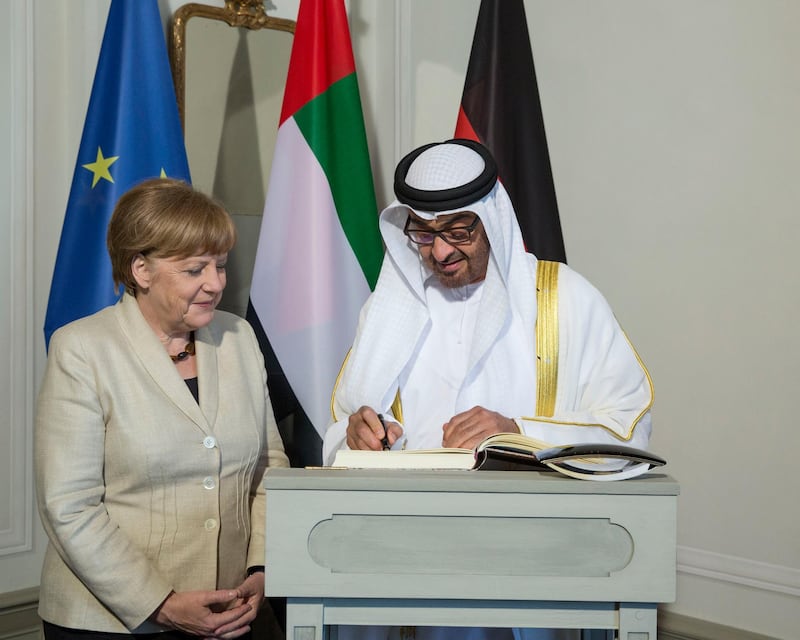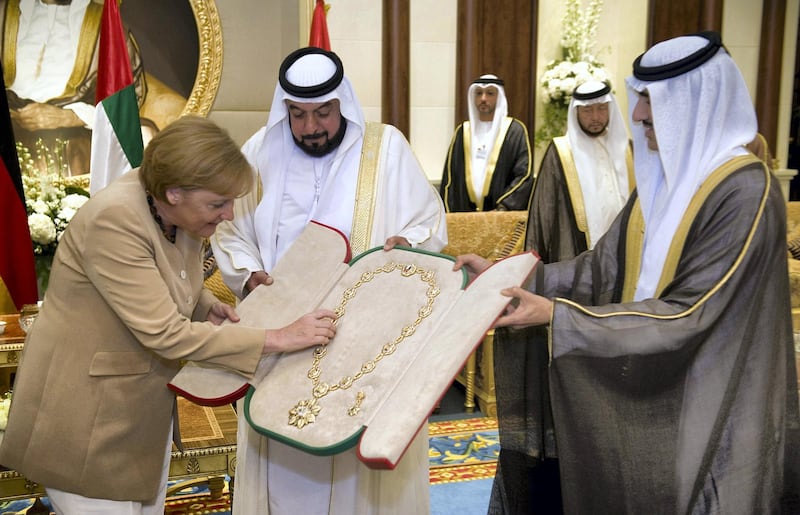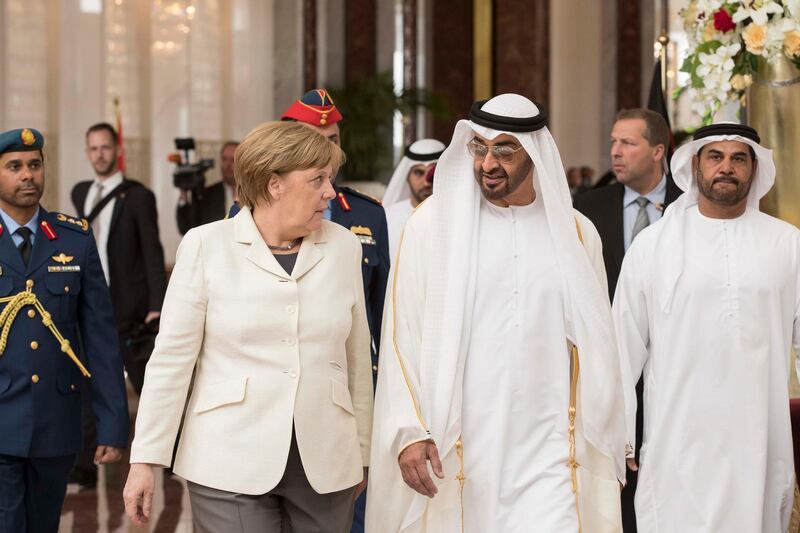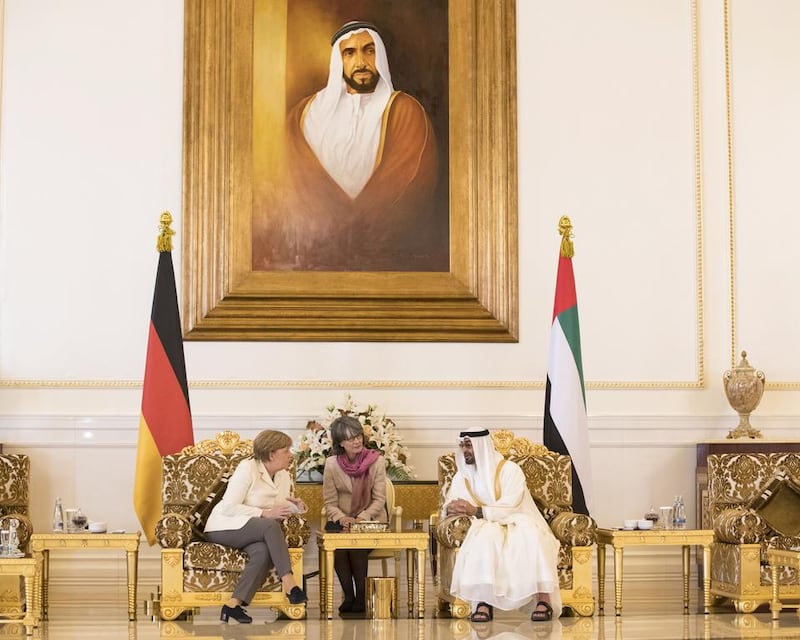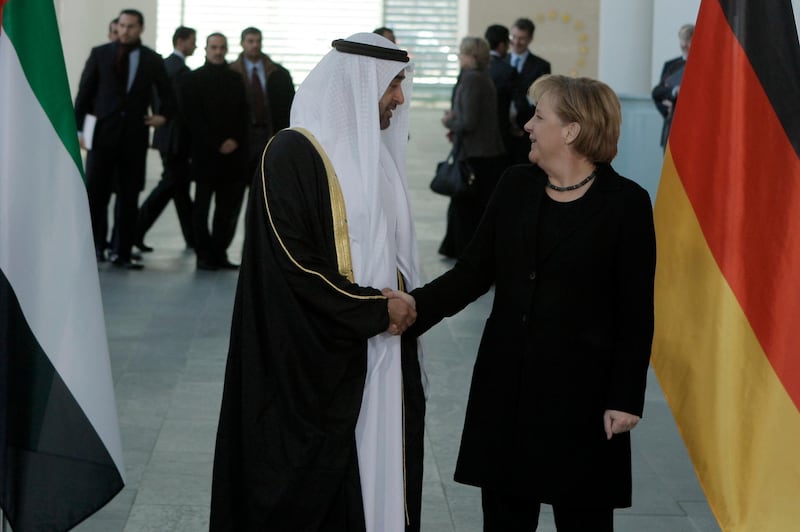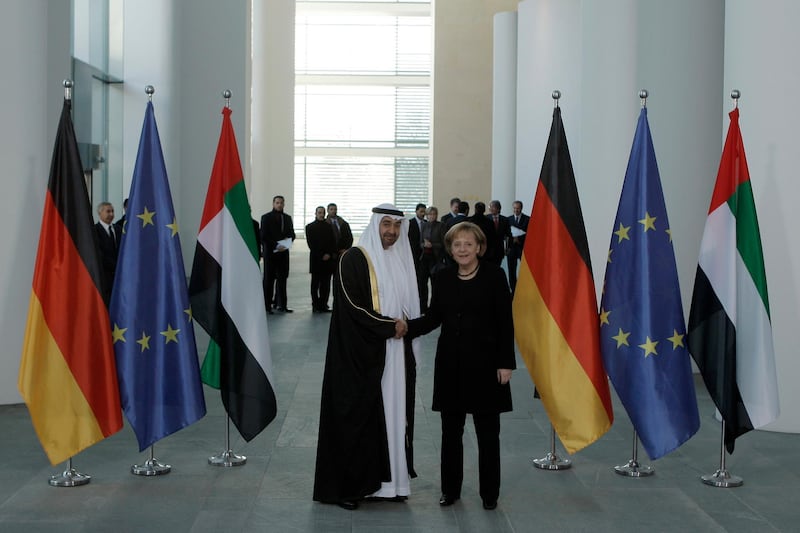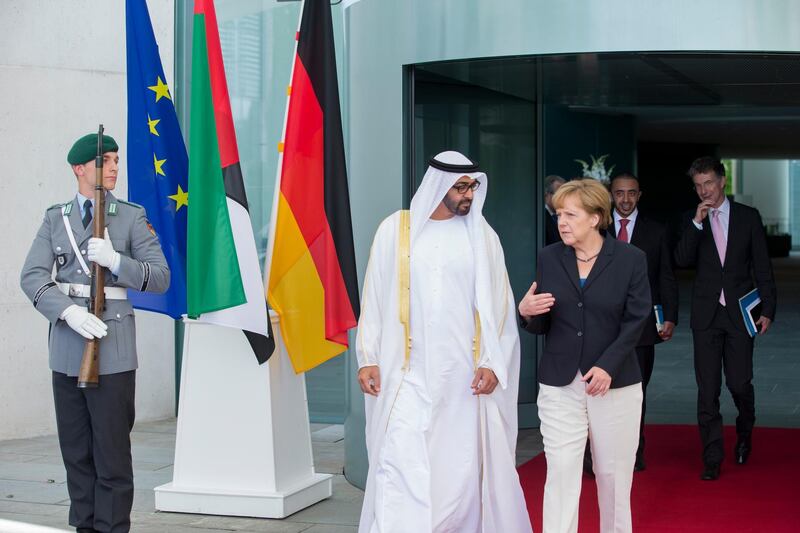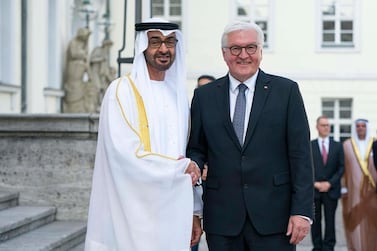The visit to Germany by Sheikh Mohamed bin Zayed, Crown Prince of Abu Dhabi and Deputy Supreme Commander of the Armed Forces, underlines the importance of what is both a strategic and economic relationship.
Speaking after a two-day visit to the UAE last month, Philipp Ackermann, the director general for the region at the German Foreign Ministry, said: “There is only one Arab country with which we have elevated our relationship to the level of a strategic partnership. And that is the UAE.”
He was responding to concerns that Germany’s recent ban on weapons sales to Saudi Arabia made his country an unreliable partner in the fight against the Iran-backed Houthi rebels in Yemen.
Sheikh Mohamed’s visit to Berlin shows a determination on both sides to maintain close ties and pursue mutual aims and stability in the region.
It comes just over two years after German Chancellor Angela Merkel was received by the Crown Prince on her second visit to the UAE, which included a state reception and a 21-gun salute.
Mrs Merkel was accompanied on her visit to Abu Dhabi by a delegation of German companies keen to do business with the UAE.
Trade with Germany has always been significant, even before the formation of the UAE. The first Mercedes vehicles were imported by what is now the Emirates Motor Company in 1962.
The cars quickly became synonymous with luxury and reliability, and a favourite of Sheikh Zayed, the Founding Father, for state occasions.
By 1967, the Emirates were importing so many ultra-luxury Mercedes-Benz 600 Pullmans that the company sent a delegation to find out what was going on. It was the first of many such visits.
Other marques, such as Porsche and BMW, have helped to keep German cars at the top of high-end imports to the UAE.
The country is now Germany’s biggest Arab trading partner, while Germany is the fourth-largest exporter to the UAE, with goods and services worth about Dh50 billion.
About 900 Germany companies operate in the country, with an estimated 14,000 German citizens living in the UAE.
They include many in the medical profession, while Emirates Palace in Abu Dhabi is managed by Kempinski Hotels, founded in Berlin in 1897.
About half a million Germans visit the UAE every year and the country’s pavilion at Dubai Expo 2020 will be one of the largest.
Alternative energy is another area of shared interest, with Siemens opening its Middle East headquarters in Masdar City in 2014.
Germany’s formal relations with the UAE began in May, 1972, when the European country was still divided and East Germany was under communist rule.
West Germany established an embassy in Abu Dhabi and a consulate general in Dubai and close ties developed.
In April 1981, West German chancellor Helmut Schmidt paid his first official visit to Abu Dhabi and was received by Sheikh Zayed.
After the fall of the Berlin Wall in 1989, the UAE was able to move its embassy from Bonn back to the reunified capital, Berlin.
The year 1990 is remembered not only for the reunification of Germany but also because of the football World Cup in Italy.
It was the first time the UAE had qualified, with the team finding itself in a group with the powerful West Germans.
Their game, on June 15 in Milan, ended in a 5-1 victory for the Germans, with the consolation for the UAE that they had lost to the eventual world champions.
In 2005, chancellor Gerhard Schroeder visited the UAE, with requests from German businesses anxious to travel with him to the region oversubscribed by nearly three to one.
In October, 2008, Sheikh Mohamed was given Germany’s Order of Merit in recognition of his humanitarian work, while the two countries agreed to hold regular consultations at foreign ministry level the following year.
